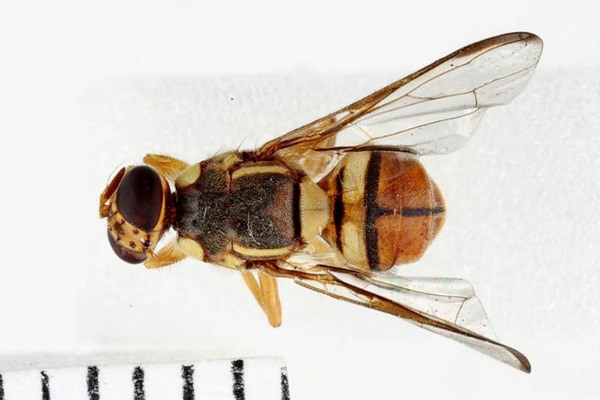Biosecurity New Zealand has imposed legal controls on the movement of fruit and vegetables in Papatoetoe after detecting a single male Oriental fruit fly in a surveillance trap. The controlled area has two zones: Zone A (200m, 198 properties) prohibits moving any whole fresh fruit and vegetables, except leafy greens and soil-free root vegetables, while Zone B (1500m, 5,470 properties) restricts movement of home-grown produce out of the area. Composting fruit and vegetable waste in Zone A is discouraged, with designated disposal bins to be provided.

The biosecurity response to the find of a single male Oriental fruit fly in Papatoetoe is making good progress with extra traps in place, stepped-up checks, legal controls introduced, special bins delivered for fruit and vegetable waste disposal, and a mobile lab in place, says Mike Inglis, Biosecurity New Zealand regional Commissioner North. "Our team has been back out today as we continue to ramp up our response efforts to ensure there are no other fruit flies around," says Mr Inglis.
"There were already 187 surveillance traps in the Papatoetoe/Mangere area, and by the end of today, an extra 105 will be in place within a 1,500-metre area of the original find.
"While we look for more flies, yesterday, we introduced legal controls to restrict the movement of fruit and vegetables around the location where the Oriental fruit fly was found to stop the spread of any other Oriental fruit flies that may be out there.
Oriental fruit fly detection
"People will notice biosecurity signage up in the area and we delivered special disposal bins for fruit and vegetable waste this morning."
Mr Inglis says instead of putting waste in rubbish bins to be disposed of normally, residents in the two zones are being asked to put fruit and vegetable waste into the special response bins for Biosecurity New Zealand to dispose of securely.
Every household in Zone A will have a fruit and vegetable disposal bin, and in Zone B, there will be about 34 bins placed around the edge of the zone, primarily on major transport routes, and a further 75 placed within the Zone.
"I want to thank the local community for their positive response to our team so far. In the previous 12 occasions we've found fruit flies in New Zealand we've successfully eradicated them with the help of our horticulture sector partners and local communities, so everyone must play their part. At present, the restrictions will be in place for a fortnight."
Mr Inglis said a mobile laboratory to examine fruit and vegetables collected from around Papatoetoe for Oriental fruit fly larvae and eggs had been set up.
"The mobile lab work and checking of fruit helps to provide us with an extra layer of certainty that there are no other fruit flies out there," Mr Inglis says.
 For more information:
For more information:
MPI New Zealand
Tel: +64 029 894 0328
Email: [email protected]
www.mpi.govt.nz
